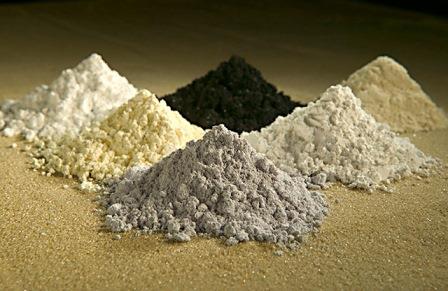
The prices of alternative energy stocks are at China's mercy right now.
That's because for the past few years, China has been in a dispute with the United States, Europe, and Japan over its exports of rare earth metals. Though China has about 30% of the world reserves of rare earths, it controls 80% of international production.
In March, the World Trade Organization (WTO) announced that China violated international trade laws by placing trade quotas and taxes on exports on rare earth minerals. Through these actions, China attempted to slash its rare-earth exports by 35% to 40% in 2014.
The U.S. objected, and the WTO issued a warning in late March. China responded with a pledge to appeal the ruling.
As this battle rages on, one thing is clear: The international solar industry could be turned on its side if China begins to hoard these metals and drive up their cost.
Certain alternative energy stocks are more vulnerable than others, while some are poised to corner the market thanks to their manufacturing networks inside China.
Of course, whenever there is market disruption like this, there is profit opportunity...
Here's how the alternative energy market is shaping up, and how to profit from this ongoing trade drama.
Why Rare Earth Metals Generate Profits
Rare earth metals are a group of 17 minerals that are central to the manufacturing of some of the most profitable products on the market today: solar panels, high-tech gadgets like mobile phones, hybrid car batteries, and products used by the defense industry.
U.S. manufacturers need these minerals to build clean technologies like solar, wind, and geothermal.
In 2012, production and consumption of the rare earth metals used in production of clean tech reached more than 100,000 metric tons, according to IHS Chemical.
Today, the vast bulk of materials needed to build these technologies come primarily from China. Demand for these metals will rise by 50% by 2017, with China's own consumption spiking 8.3% each year, according to the same IHS report.
The level of demand makes manufacturers outside of China extremely vulnerable to any controls that the country implements in order to reduce exports.
The nation can increase mining taxes and export license fees, build up strategic reserves, introduce stricter environmental guidelines, increase export duties, or provide tax credits for anything used in domestic production. It can make it far more difficult for companies to access rare earth metals, which would prioritize its supplies to domestic manufacturers of electronics, solar production, and other industries requiring their use.
Look for China to introduce new policies in the domestic mining, refining, and trading industries in the near future that ultimately have the same effect as export controls, but do not violate the WTO agreement. Meanwhile, the country has already taken up measures to reduce its exports and ensure domestic supply.
These steps keep rare earth metals within Chinese borders.
Fortunately, investors can anticipate these moves now and tap into alternative energy stocks before they take off from the rare earth metals war...
Alternative Energy Stocks That Stand To Soar - And Those To Avoid
Since China produces 55% of the world's solar panels and aims to maintain its dominance in the clean energy sector, the supply of rare earths is vital to its strategic interests.
Given that companies rely so heavily on China for vital "green" components, the cost of compliance or export levies would ripple through their production processes, driving up input costs and hammering their margins.
Drastic cost increases will make it extremely difficult for international solar companies outside of China to manufacture and sell panels at competitive prices. In fact, global production could plummet, leaving China as the only market for solar panels.
This leaves the top ten international producers by global market share vulnerable. These include U.S. producer First Solar Inc. (Nasdaq: FSLR), Japan's Sharp Corp. (OTC: SHCAY) and South Korea's Hanwha Solarone Co. (Nasdaq: HSOL).
In contrast, the alternative energy stocks of Chinese companies like JinkoSolar Holding Co. (NYSE: JKS), Yingli Green Energy (NYSE: YGE), and Trina Solar Limited (NYSE: TSL) stand to benefit from the actions taken by their government.
You can't make money watching from the sidelines, and to become a successful investor, you have to start making trades. Here's how you can get in the game and start profiting now...


